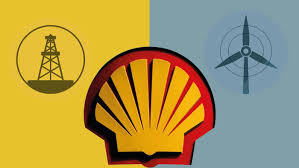
The electric-vehicle (EV) charging company Ubitricity will be purchased by Royal Dutch Shell as a part of the target of the company to become a net zero carbon emission company by 2050.
With this deal, the FTSE 100-listed energy company will be able to enter the on-street EV charging market – which is a fast growing segment of the electric vehicle industry, and this deal will serve Royal Dutch Shell well because of the rapid increase in sale of electric cars In Europe.
With more than 2,700 charge points and about 13 per cent market share, the largest public EV charging network in the United Kingdom is owned and operated by Ubitricity. This company is also expanding and growing its networks in Germany and France. Private charging points for electric vehicles users are also provided by the company. Charging points in existing street infrastructure, such as lamp posts and bollards, are installed by this company which is based in in London and Berlin. This allows electric car drivers who do not have access to a private driveway to recharge their vehicles easily.
It is expected that the deal, the value of which was not disclosed by the companies, will close later this year and after the deal, Shell will make Ubitricity a wholly owned subsidiary of it.
There are more than 1,000 charging points at 430 Shell retail sites are already owned by it, said the Anglo-Dutch energy company. It also has enjoys access to more than 185,000 third party charging stations. The trend of people switching more to lower-carbon transport will be supported by its move to acquire Ubitricity, Shell said.
Auto makers in Europe have reported a growth in the sale of electric vehicles in 2020 which us one of the silver lining to an otherwise dismal year for the global auto industry.
212,000 electric cars worldwide was delivered by it last year, Volkswagen said earlier this month, which was a 158 per cent growth in the segment compared to the sale in 2019. On the other hand, a 228 per cent year on year growth in sale of its electric cars was reported by Mercedes-Benz owner Daimler with more than 160,000 units being sold by the company. For Renault, the sale of its European EV jumped two fold in 2020 at sale of 115,888 vehicles.
The boost in sales was also driven by government incentive schemes.
On the other hand, with a collapse in demand for oil during the novel coronavirus pandemic, 2020 has been a difficult one for the world’s largest oil-and-gas companies. That forced Shell to cut its dividend for the first time since World War II and suffered a record $18.1 billion loss during the second quarter of the current year. .
(Source:www.barron’s.com)
With this deal, the FTSE 100-listed energy company will be able to enter the on-street EV charging market – which is a fast growing segment of the electric vehicle industry, and this deal will serve Royal Dutch Shell well because of the rapid increase in sale of electric cars In Europe.
With more than 2,700 charge points and about 13 per cent market share, the largest public EV charging network in the United Kingdom is owned and operated by Ubitricity. This company is also expanding and growing its networks in Germany and France. Private charging points for electric vehicles users are also provided by the company. Charging points in existing street infrastructure, such as lamp posts and bollards, are installed by this company which is based in in London and Berlin. This allows electric car drivers who do not have access to a private driveway to recharge their vehicles easily.
It is expected that the deal, the value of which was not disclosed by the companies, will close later this year and after the deal, Shell will make Ubitricity a wholly owned subsidiary of it.
There are more than 1,000 charging points at 430 Shell retail sites are already owned by it, said the Anglo-Dutch energy company. It also has enjoys access to more than 185,000 third party charging stations. The trend of people switching more to lower-carbon transport will be supported by its move to acquire Ubitricity, Shell said.
Auto makers in Europe have reported a growth in the sale of electric vehicles in 2020 which us one of the silver lining to an otherwise dismal year for the global auto industry.
212,000 electric cars worldwide was delivered by it last year, Volkswagen said earlier this month, which was a 158 per cent growth in the segment compared to the sale in 2019. On the other hand, a 228 per cent year on year growth in sale of its electric cars was reported by Mercedes-Benz owner Daimler with more than 160,000 units being sold by the company. For Renault, the sale of its European EV jumped two fold in 2020 at sale of 115,888 vehicles.
The boost in sales was also driven by government incentive schemes.
On the other hand, with a collapse in demand for oil during the novel coronavirus pandemic, 2020 has been a difficult one for the world’s largest oil-and-gas companies. That forced Shell to cut its dividend for the first time since World War II and suffered a record $18.1 billion loss during the second quarter of the current year. .
(Source:www.barron’s.com)





